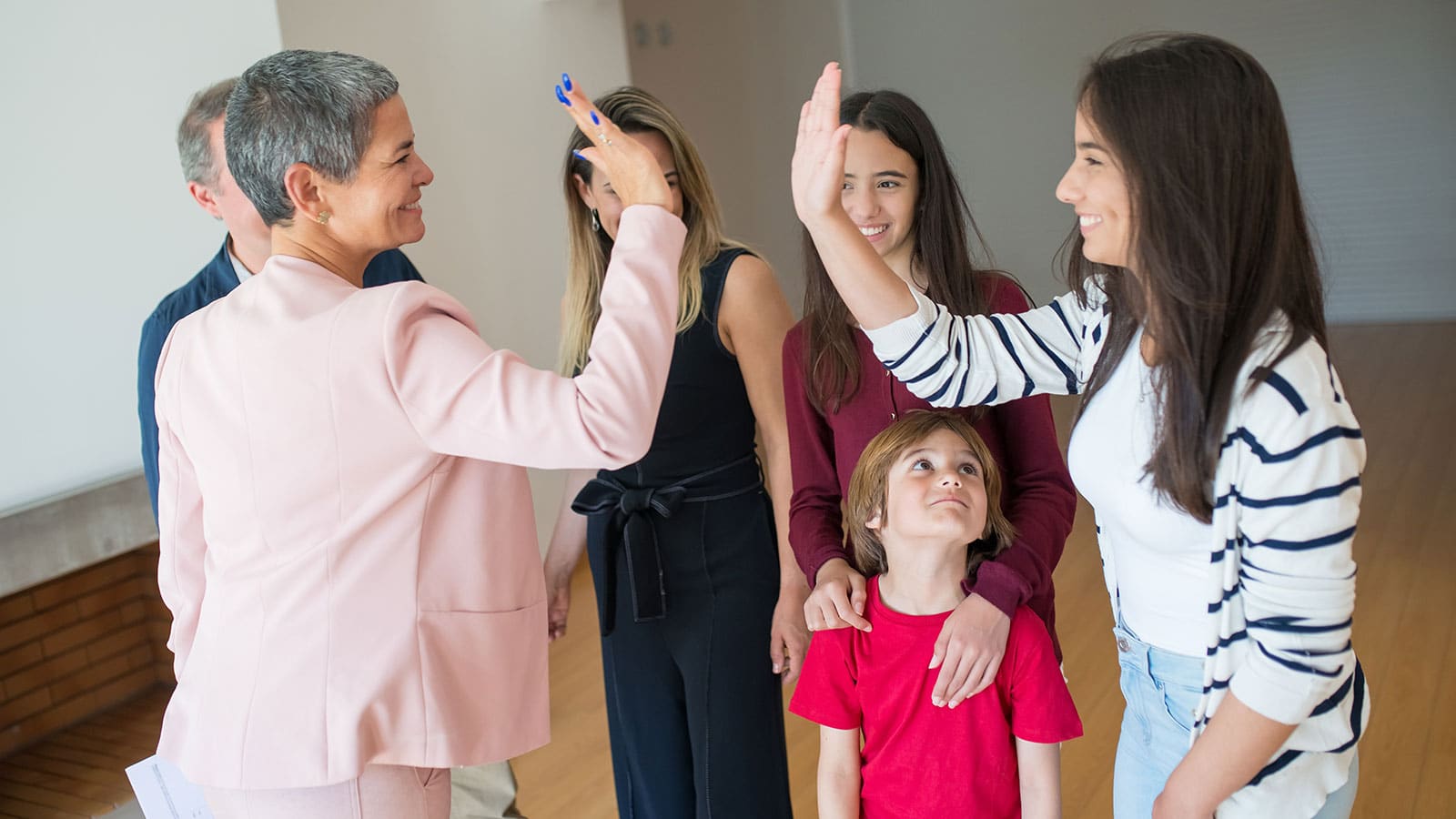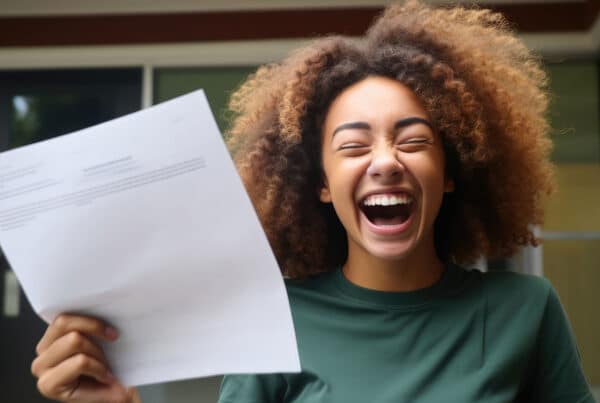Last Updated On: July 1st, 2024
1. What is the most important thing you wish you could tell all applicants?
The most important thing is to be themselves. The goal is for the school to get to know who they are as a person. Showcase who they are and highlight their greatest strengths. Each child has unique gifts and talents. Let them know what they’re involved in outside of school. They aren’t just looking for one type of kid. They want diversity in different ways. They’re looking for the athlete, the academic, and the musician.
2. What does the personal statement need to have? Are there crucial elements that need to be included on the application essays?
For personal statements and application essays, it’s really important to pay attention to the word count. They vary tremendously. Don’t write huge essays and then consolidate them. It’s much better to write to the prompt so the story feels complete. It’s a big red flag if you go over the word limit. Never use slang words. You’re giving an impression of who you are. Make sure you’re putting your best foot forward.
Always include enough “meat” in your writing. Students have to explain the “why’s” and give examples to be successful. For example, don’t just tell me you’re athletic and good at soccer. Maybe you don’t have a game winning goal story, but you might be the leader on your team, or the player that brings people together. Include storytelling and use more than just adjectives. I worked in admissions for a long time and read thousands of applications. It’s boring if students don’t explain anything. You want to be memorable and tell a rich story so they can get to know the real you.
Each school is different. You need to really pay attention to the school you’re applying to. Tailor your responses to that specific school. Know their mission statements and values. Make sure to fit the ethos of that school environment.
3. Is it ok if parents or tutors help them make edits and revisions or does that have a negative impact in the admissions process?
Yes, parents should definitely review the application. It should be a polished version of the student. There shouldn’t be any spelling errors or missed grammar. Parents and tutors are helpful, but the essays must be written by the child and in their voice.
4. From all the students you’ve coached and worked with, would you say there is one thing in particular that students have done on their personal statement that makes them stand out?
There isn’t one thing that makes a student stand out. When a student is illustrative in their writing and does a great job of conveying their passion and interests, talents, and academic pursuits, it definitely helps them stand out. And when they can communicate this information while weaving it into the admissions questions, it absolutely makes them stand out.
5. What is the best way to prepare for the day you tour the school?
Before they’ve applied to any schools, both parents and students need to know the environment, the culture, and what the school is all about. Students and parents need to be prepared to ask questions about the programs and the school.
When you go to visit a school you want to pay attention to everything in the environment–what do the walls look like?, how do the teachers and students interact?, are the hallways well lit, painted, filled with students?, etc. Make sure to pay attention and have awareness everywhere you go so you know if this school is actually a good fit.
On the day of the tour, always dress appropriately. Look like you care and don’t wear athletic-wear or other relaxed clothing. Treat it like an interview and put your best foot forward. Always be on time or even try to be a few minutes early. They keep track of those things. Be kind and courteous to everybody you meet–from the security guard to the front desk. If you aren’t kind or professional, that can follow you.
6. How do you suggest kids prepare for the interview portion of the admissions process?
All schools do interviews a little bit differently. Some have timed writing on one day and the interview on a different day. Some schools do group interviews. It changes often due to Covid procedures.
A traditional interview can be really hard for a kid unless they’re super gregarious. Having a parent, family friend, or hiring someone (a tutor or consultant) definitely helps when they need to feel comfortable talking about themselves.
Students and parents need to know what they like about the school from an academic or community standpoint. The student needs to know their strengths and weaknesses. Always end on a positive note, and wrap it up with a bow. If you’re listing weaknesses, always end with what you are doing to improve on that weakness. The schools want to know you as a person too– what do you do in free time, what do you do together as a family. Often kids have only attended one school their whole life. It’s important to talk about their experience.
This is the opportunity to bring everything on the application to life. Don’t be afraid to brag! If you’re competing at a high level or an accomplished pianist, share that. Sharing what it is that really excites you about math or how you’ve been really dedicated to community service, is so important during the interview. You have to be comfortable and confident to share. Try to be positive as well, even if you don’t like your teacher or you don’t like reading, don’t tell them that. Find a way around the question. Instead of discussing books you’ve read for fun, talk about books you’ve read at school and how they’ve impacted you. Explain to the interviewer why you’re interested in this community and this school. Know what the school is like and how you could contribute to that school community. They want kids who will get involved.
7. How do you think students should prepare for timed writing samples? Do you typically recommend they work on prompts with a tutor?
This is a very individual thing. Some kids are prepared based on the instruction they have in schools, others aren’t getting that experience and will want more preparation. If a student wants to do practice before their assessment, it’s just going to help strengthen their fundamental writing skills. I always offer my clients the option of working with a writing coach or tutor.
They need to be able to structure a paragraph and write well. It’s very important. As a pro tip, I always suggest a kid choose the more structured prompt versus the free-flow, creative prompt, especially with the younger students.
Because there are typically no placement tests in English departments like there are in math, it’s really important to demonstrate their skills for the timed writing and reading comprehension assessments.
8. Do you recommend students space out their interview dates at schools or is it better to get them done back to back?
I recommend a little bit of space between them. They might get confused about what school they’re working toward, so it’s a good idea to have the interviews relatively close to one another, but not back to back. You want time to look at the application beforehand, review the essays you wrote for that school, and revisit the stories you shared with them. You need to prepare for each school interview separately, but also stay in the groove of the interviewing process.
9. Do you recommend that students with test optional admissions policies take the ISEE?
This is such a subjective question based on the school you’re applying to, the scores you receive, and the overall package you present as a student. Schools are either asking for the ISEE or their in house assessment. It’s always good to talk to a consultant before you decide to send scores so you can weigh your options and make the best decision as a team.
10. As you know many private schools stopped requiring the ISEE during the beginning of the pandemic. Do you see schools requiring the ISEE again? Are there particular schools that will continue to require their own math and english tests?
There are a handful of schools that will never require the ISEE again and they are pretty strong on that stance. After a few years, some schools may think it’s beneficial to implement it again.
At least right now, for the next year or two, it will probably be like this (optional or not required).
Most schools that don’t require the ISEE seem to have an english and writing focused test.
For the middle or elementary age kids, schools want to see either an ISEE or some other standard type of test that measures their comprehension in all areas. For example, last year at The John Thomas Dye School (JTD) either you could sit for the ISEE or they offered an NWEA K-12 standard test for grades 4-6. At the Brentwood School, they offered their own assessment during the application process just to make sure students were at grade level with their classmates.
11. Is there anything a student or parent can do to improve their application that isn’t the application or testing?
It’s so helpful to show interest. If you know families that are involved in the school and community, a personal letter of recommendation from someone who knows your family well and who attends school functions, gives more insight on who you are. Let them share about your student, that they’re an accomplished artist, athlete, citizen. If you can get someone who coaches them to write a letter, that’s good too.
Just be careful when you show interest. Don’t call every day. DO go to tours and open houses. Visit the school for events and games. Handwritten thank you notes are so important. Show the school your continued interest in a professional and respectful way.
12. How far in advance should you find an admissions consultant? Can it be done in less time?
It’s ideal to start working with a consultant in May for applications due from October to the following January. The earlier, the better. When we start earlier, I get to know the families and the students and it becomes a partnership. This helps me advocate for them, get to know the students, and ensure I point them towards a school that’s a good fit. An earlier start also helps families find school tours far in advance and allows them to see the schools before committing. However, I will have families that show up anytime from August to a month or two prior to application deadlines. I do offer hourly services for families in addition to my packages.
13. What should parents and students expect when they sign up to work with you as their admissions consultant?
When I work with a family I will ask them to complete a family admission questionnaire. They will need two years of grade reports (similar to what a school will ask for). I get to know the family and what the child is like as a student.
I serve as a partner to the parents to help them and direct them through the admissions process. I help guide them in which schools to apply to, I support them with completing the applications, and I assist them through the interview process. Parents can put a lot of stress on kids during the process, but that usually comes from their stress. So many questions come up along the way and it’s helpful for parents to have someone to show them the way.
Photo by Kampus Production




















